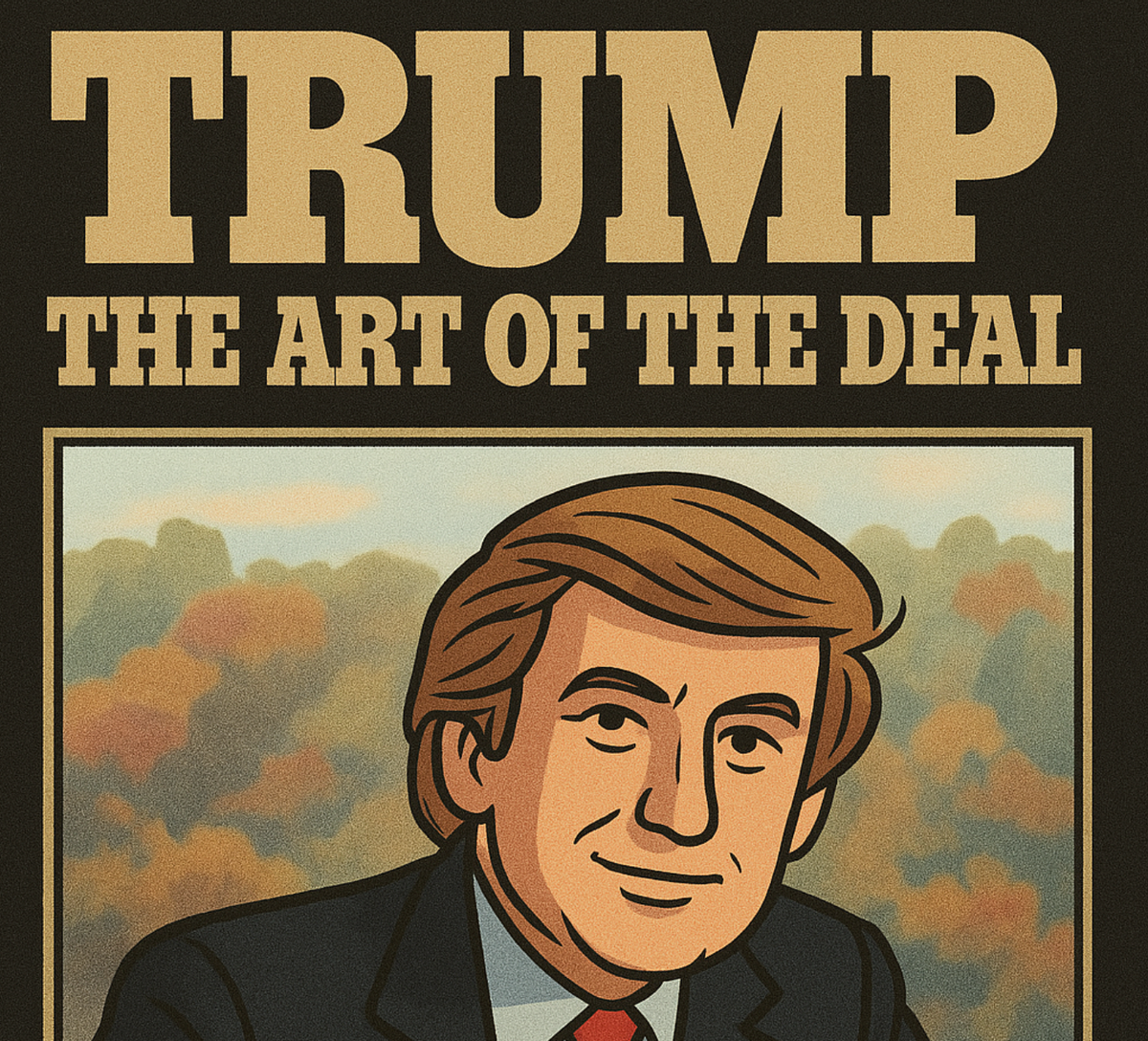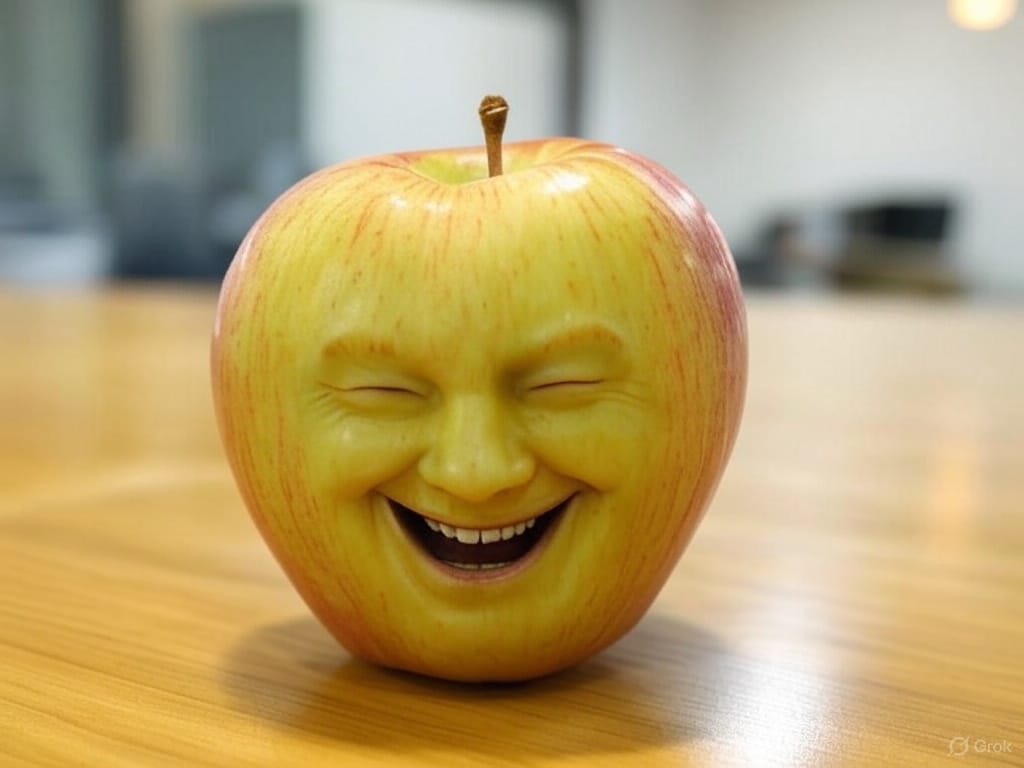The Tariff Yips

Well if you believe The New York Times reporters, which The White House will of course say you shouldn't, but they're historically four of the best reporters on such matters – Tyler Pager, Maggie Haberman, Ana Swanson, and Jonathan Swan – so you probably should, the situation inside the White House leading up to the ultimate 90-day pause of the (reciprocal) tariffs was a mixture of comedy and chaos. Shocking, I know.
But in the end, it was the markets that got him to reverse course.
The economic turmoil, particularly a rapid rise in government bond yields, caused Mr. Trump to blink on Wednesday afternoon and pause his reciprocal tariffs for most countries for the next 90 days, according to four people with direct knowledge of the president’s decision.
Asked to explain the decision, Mr. Trump told reporters: “Well, I thought that people were jumping a little bit out of line. They were getting yippy, you know, they were getting a little bit yippy, a little bit afraid.”
Basically, it reads like there are different factions within the administration, not exactly warring, at least not yet – except perhaps for Elon Musk and the most aggressive of Trump's tariff hawks, trade advisor Peter Navarro, whom Musk humorously keeps calling a "moron" in public – but certainly at odds in their opinions. And it seems like Trump decided to go with his gut – his decades worth of opinions that the US was getting screwed over in tariffs – in siding with Navarro's super aggressive tariff plan. The problem is that there was seemingly less of a plan and more of just a stance.
And if you believe all of that, I was partially right and partially wrong in my assessment of the situation a couple days ago. I was perhaps wrong in thinking that the intent (at least Navarro's) was to bring the world to the negotiating table – though, interestingly, but hardly surprisingly, the White House is now seemingly backing into that explanation for the maneuvers – but I was perhaps right that this is what Trump ultimately loved about the plan after the entire world started to reach out to negotiate. And that, in a way may have both helped and hurt the White House from getting to the ultimate solution here. But ultimately, it seems like Treasury Secretary Scott Bessent – seemingly one of the few voices of reason in this madness – won the day by appealing to Trump's understanding of the bond market. And so Trump reversed course on a dime.
And so, ultimately I was correct in how this would play out (at least for now):
And you will not be able to convince me that Trump is doing all of this for the greater good, for generations years from now. Perhaps some of his most idealistic advisors believe this, but Trump is Trump. I do believe there's truth to his hatred of trade deficits – he's been railing on this for decades – but that's also better as a political talking point versus an economic reality. I think some of those advisors are yes, leveraging this long-held belief of his in an attempt to carry out agendas.
But ultimately, Trump will set the agenda.
Is having a trade surplus better or worse than having a stock market collapse? You can't have both here, sadly. And if you believe the old Benjamin Graham adage that the stock market is a voting machine in the short term, well...
So I bet this ends up being less a "Nixon shock" and more a "Trump turbulence". That it's less completely blowing up the global trade system – something else that would take years and years to play out – and more about re-wiring it with better deals, which Trump would love nothing more than to take credit for, in the short term. And I'm sure his team believes that if they can start to lock in some of these deals that they, in turn, will bring back a booming stock market. Because it will restore some level of stability and remove some level of uncertainty, if nothing else. But he needs to get those better deals locked up first and again, he cannot do that without leverage.
That leverage, again, perhaps backed into, is now the chaos he caused but also, the continued pressure on China:
The wild card here is clearly China. Right now, that country, which obviously matters the most in all of this plan, is calling such a bluff. If they keep calling it, and won't deal on Trump's terms, that's going to be a major problem, to say the least. Perhaps Trump still gets smaller wins in other deals with other countries, but that only happens if the China tariffs remain in place. Leverage.
Those China tariffs not only remain in place, they keep getting ramped up – and vice versa. Trump clearly blinked first, but he seemingly stumbled into a better negotiating situation if they can leverage the US market and deals with other countries into getting China to cut some sort of deal of their own. But I won't pretend to understand how China might handle such pressure!
Anyway, that's my optimistic take about what I think is going on by simply trying to read the room and using common sense thinking. There's certainly an argument to be made that you shouldn't use common sense thinking with this administration, but I think the fact that no other administration would dare do any of what Trump has already done already speaks to how wild this all is. But that doesn't mean the intent is to blow up the world, but rather to shake the snow globe, causing enough chaos to produce a fertile ground for leverage. People willing to do crazy things often get what they want because most people aren't willing to do crazy things.
That's the ultimate art of Trump's deal, I suspect.
Again, in the end, one way or another, correct!
One more thing: I feel like my initial assessment of Bessent as the Treasury pick when he was announced back in November is pretty spot on today:
Fascinating profile of Scott Bessent, Donald Trump's pick – after a lot of internal jockeying – to run Treasury. Honestly, he seems like a pragmatic, interesting choice. His insight and grasp of economics that brought down the Bank of England and later bet on "Abenomics" – both of which earned the Soros funds he help steer, billions (yes, Trump picked a person who long worked for George Soros) – showcase a deep grasp of macroeconomics and a nuanced understanding of ramifications. The latter point feels like it will be key with all the tariff talk – and Bessent frames at least some of it as just that: talk. A way to negotiate. A very Trumpian way to negotiate. Mainly I appreciate his desire to do his own research and read non-stop – going so far as to block of Fridays to do so. Very Buffett-esque of him.
Ooooohhhh, that's a bingo!
Okay, two more things: the real interesting next question is what happens to Apple in all of this. They briefly lost their crown as the world's most valuable company in this madness, but came roaring back yesterday (even more so than many others, thus allowing them to take back the crown from Microsoft). Yet their peril remains very real because of their reliance on China. And the administration's (stupid) talking points about having them build iPhones in the US puts them in an even more awkward situation.
Still, if I had to guess, I imagine Tim Cook will work his magic to once again get a tariff exemption from Trump. But the wild card here is what China does. Again, if they're looking for leverage, they have it in Apple over the US, as long as the US is interested in keeping Apple as the most valuable company in the world...


Update April 12, 2025: And sure enough, Apple gets their exemptions:




